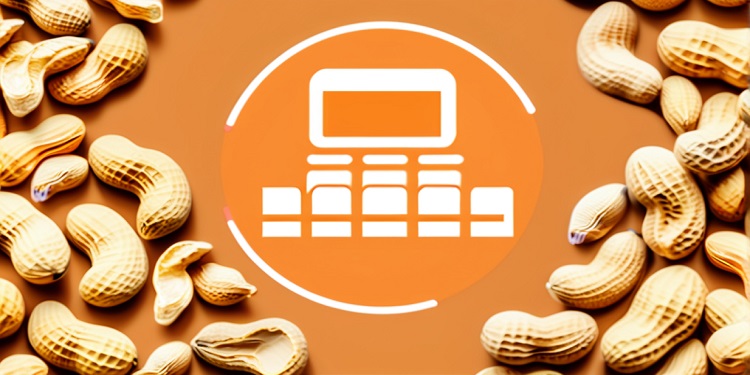Peanut has announced the launch of its beta version for the world’s first self-custodial offramp, allowing users to directly convert cryptocurrency into fiat currency and deposit it into their bank accounts. This new feature, available in the EU and the US, provides an alternative to centralized exchanges (CEX), significantly simplifying the process of converting tokens from over 20 Ethereum Virtual Machine (EVM) chains into traditional currencies like the US Dollar or Euro.
The self-custodial offramp acts as a vital bridge between the blockchain ecosystem and traditional fiat payment networks, including systems like IBAN, BIC, and SWIFT. Users can now seamlessly transfer funds from a variety of cryptocurrencies to their bank accounts without the need for custodial services or exchanges. This service, which is still in beta, highlights the growing movement towards decentralization in the cryptocurrency space, offering a faster and more direct way to access fiat currency from crypto holdings.
Bridging Crypto and Fiat: How It Works
The key innovation Peanut offers is the ability for users to cash out funds from any token on multiple EVM chains directly to a bank account. This process bypasses the complexity and delays often associated with using centralized exchanges or custodied solutions, streamlining the transition between digital assets and fiat money. The technology effectively creates a secure and efficient link between blockchain networks and traditional banking systems, making cryptocurrency more accessible for everyday transactions.
This new offramp solution also provides a more user-friendly approach to transferring cryptocurrency. By leveraging blockchain technology, Peanut allows users to send funds via simple communication platforms like WhatsApp, Telegram, and email. Additionally, funds can be sent using QR codes, allowing recipients to cash out directly to their bank accounts, even if they do not have a crypto wallet. This is a game-changer for those who may not be familiar with cryptocurrencies but still wish to receive funds in fiat currency. It eliminates the need for the recipient to interact with blockchain technology, which has historically been a barrier for mainstream adoption.
Text-Based Transfers: A New Era for Crypto Usability
Peanut’s self-custodial offramp represents a significant advancement in making cryptocurrency more usable in everyday scenarios. The ability to text money via messengers such as WhatsApp or Telegram, or even through email, makes it much easier for people to send and receive funds, without the need to navigate complicated crypto exchanges or even understand the underlying technology. This breakthrough is expected to improve the adoption of cryptocurrencies, particularly for freelancers, gig workers, or anyone needing to send or receive payments across borders.
Hugo Montenegro, Peanut’s co-founder, expressed that this innovation represents a significant step toward simplifying the use of cryptocurrencies in daily life. He noted that Peanut’s new offramp solution enables stablecoins to be sent over familiar communication platforms, making it easier to pay freelancers and complete cross-border transactions with ease. By removing the need for intermediaries like CEXs, Peanut’s new feature enhances accessibility while providing a frictionless experience for users.
Cost-Effective and Accessible: Features of the Beta Rollout
During the beta phase, Peanut has introduced a special pricing model to encourage early adoption. Users can cash out their cryptocurrency at a discounted rate, paying only $1 plus 0.25% per transaction. The minimum cashout limit has been set at $10, making it accessible for smaller transactions as well. These low fees, combined with the ease of use, are expected to appeal to a wide range of users, from individual freelancers to larger organizations needing quick, efficient payment solutions.
As Peanut continues to roll out this feature, it is expected that more users will take advantage of the seamless conversion of cryptocurrency into fiat, bypassing the traditional constraints of centralized exchanges. The integration of self-custodial technology ensures that users maintain control over their funds throughout the process, further enhancing security and decentralization within the crypto ecosystem.
Peanut’s beta version of its self-custodial offramp marks an important step toward increasing crypto accessibility and usability, setting the stage for wider adoption of blockchain technology in everyday financial transactions. With its innovative approach to integrating communication platforms and blockchain, Peanut is poised to make cryptocurrency transfers as simple as sending a text message.









